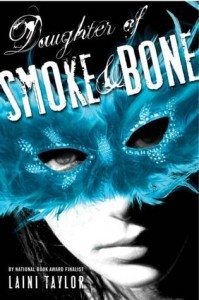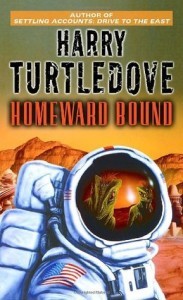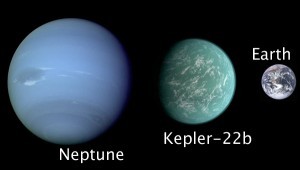Rachel Neumeier's Blog, page 330
August 4, 2015
You know when a series ends and you are sad?
Of course we all hate to see a favorite series end, right?
Well, then, imagine how pleased I was — and I hope you will be — by this announcement from Martha Wells.
Night Shade Books is thrilled to be able to announce the acquisition of World English rights to two new novels from Nebula Award-nominated author Martha Wells, set in the same Three Worlds universe as her popular Raksura books. The first book, The Edge of Worlds, will publish in April 2016, and is the start of a new standalone duology, making it a great entry point for new readers.
I’m pretty sure no one is more pleased about this than me. Except for Martha Wells, obviously.
The cover art hasn’t been released yet, but the book is available for preorder already!
Good for Nightshade Books, good for Martha Wells, and offhand I expect this is the book I’m most looking forward reading to next year.

Recent Reading: Daughter of Smoke and Bone by Laini Taylor
Also, Days of Blood and Starlight and Dreams of Gods and Monsters.
The first book, Daughter of Smoke and Bone, has been sitting on my TBR shelves roughly since it came out, which is to say, for several years.
I’d heard lots of good things about it, but then a) it was the first book of a trilogy and I wasn’t that interested in reading it till the series was complete; b) though everybody seems to love Daughter, reactions to the other two books in the series were mixed and that put me off starting the trilogy at all.
I mean, here is Chachic’s review of Daughter. And here are her reviews for Days and Dreams. And if you read through other reviews at Goodreads or wherever, you will see that this is not an unusual reaction to the various books in the series. Why, I might never have tried the first book at all if anybody had warned me there was a tremendous cliffhanger of an ending.
Warning: The first AND the second books both end with tremendous cliffhangers.
However, having read the full series, I have to say, I’M SO GLAD I WAS NOT SCARED AWAY FROM THIS SERIES, because it is wonderful.
So. Let me unpack this trilogy a little.
1. Daughter of Smoke and Bone starts as a mystery. What is the truth about Karou? What is the truth about her “family”? What *is* Brimstone using all those teeth for? Who is Akiva and what in the world is going on?
I loved this book. Laini Taylor’s writing is so beautiful. I was recently reading Turtledove’s Worldwar series, as you know, and I would say that Turtledove’s writing is serviceable. There’s nothing wrong with it, but it is not interesting or catchy or poetic or, you know, vibrant. Taylor’s writing is a complete contrast to that kind of serviceability. I hardly bookmarked anything because so many passages were bookmarkable and one can’t mark everything.
Also, the setting – Prague – is so beautifully drawn. Loved it.
So, Book One establishes the characters, sets up the world(s), answers (most of) the mysteries, and crushes the reader beneath the hammerfall of tragedy. Then it ends on a cliffhanger.
The characters: I love Karou, Akiva is all right, the insta-love thing could be awful but Taylor does manage to pull it off. And then we get a whole list of secondary characters, all of whom come to life on the page. I loved Brimstone, I was totally creeped out by Thiago, and of the whole set of characters, Zuzana is my absolute favorite.
The first book is mainly from Karou’s pov. As the trilogy goes on and we accumulate more secondary characters, Taylor pretty frequently switches from one pov to another, using this mainly to build tension. I said that the first two books end on cliffhangers, which is true, but in fact many, many chapters end on cliffhangers. Taylor does an amazing job with tension – this whole trilogy is a compulsive page-turner.
2. Days of Blood and Starlight is not a mystery. The reader knows what’s going on, or thinks she does, which makes this a grim slog through a horrible situation. The first third of this book, maybe a bit more, was really tough to read. Karou, crushed by the horror of events in the first book, flounders ineffectually for quite some time. Thiago is a really competent, creepy, manipulative son of a bitch, so the reader can be appalled at Karou’s feeble attempts to get control of her life back from him, but still sympathize because really, she is genuinely stuck in a pretty terrible situation. Also, she is horrified at her own ineffectuality, which helps the reader tolerate it.
Then – and this is important – Taylor starts to redeem the situation. Nonspecific spoiler: The terrible things that were revealed in the first book truly were terrible, but, it turns out, generally not as utterly, irredeemably terrible as we were led to believe. Where the series looked a lot like it was going to turn grimdark, in fact it does not. Not even remotely.
What happens with Thiago is fantastic, in the cosmic-justice sense of believable and satisfying. A great secondary character, Ziri, gets a chance to shine. Many other characters deepen and start to change shape before the reader’s eyes, especially Liraz, who became another favorite of mine. Zuzana thankfully remains an important character. Everyone takes decisive action and . . .
Things go wrong and there is another brutal cliffhanger.
3. Dreams of Gods and Monsters was much easier to read than the early part of the second book. By this time, the reader should be trusting the author to get the most terrible things to work out in ways that are not *so* terrible. This trust pays off, fortunately.
I got the impression from various reviews, including Chachic’s that in the third book Karou and Akiva might take a back seat to new characters. This shows how important the first few pages of a book are, because it isn’t true, but the third book does open with a brand-new character, Eliza, and I guess some readers were really not happy about that. I do wonder if Taylor knew about Eliza when she started writing the trilogy, and my feeling is she did not, or she would have worked her into the story in the first couple of books.
Anyway, Eliza probably takes up less than 5% of the third book. The focus is still very much on Karou. Also Akiva, Zuzana, Mik, Ziri, Liraz, etc. Again, for me, the secondary characters tend to steal the thunder. Karou is fine, but the whole bit that deals with Zuzana and Mik rescuing Eliza from madness is excellent. So is the moving scene where Liraz rescues Ziri.
There are many, many great details as we move toward the ending of the story. The way Karou and Akiva deal with Jael is brilliant. What happens to Esther is another major example of cosmic justice. I saw that thing coming with Liraz, but I was so rooting for that resolution, it was deeply satisfying when it happened. And then the entire story ends up at a good place. Some reviewers comment that it is not a simple happy ending. Well, it pretty much is, actually. Sure, we can see a non-peaceful future for our main characters, but it is a *bright* future – and the peaceful interlude they’re getting now, in which to re-build the world, provides a satisfying resolution to the trilogy.
Flaws: Okay, I must admit that Taylor, toward the end, gets the story to work out via background information that she delivers to the reader in what can only be described as infodumpy passages – there isn’t much clumsy writing in this trilogy, but background infodumps are not my favorite thing. Efficient, though, and I suppose Taylor did not want to write another fifty pages to work in the background.
Also, Eliza and the Stelians were pretty much deus ex plot devices, especially in one particular scene. Taylor did work them into the plot pretty well, especially the Stelians. But still. I do suspect she came up with a lot of this backstory after the fact and plugged it into the third book in a more heavy-handed way than would have been necessary if she’d worked it in better from the beginning. Since when I write a book, I seldom know where I’m going myself, I can sympathize. But still, that’s my impression.
And . . . that’s about it for flaws. Wonderful series, just don’t stall out during the grim beginning of the second book.
Now, a special note:
You know how I said Zuzana is my favorite character. Well, Taylor also wrote a little novella featuring Zuzana and Mik, Night of Cake and Puppets, which is available for a buck at Amazon. It is set within Book One, happening concurrently with some of the events in that book, but can certainly be read at any point, including before you read the trilogy at all. If you are sort of hesitating over trying the trilogy, I strongly, strongly suggest you read this novella and then decide.
Cake is a romance, but about as far from a goopy romance is you can get. If you are not a fan of romance in general, don’t let that put you off.

July 31, 2015
Let there be cake!
Yeah, actually, I’m avoiding sugar this week, but I thought you all deserved a pointer to this delightfully-named cake. The recipe is at Smitten Kitchen and I would never have known about it except for a link via Maureen at By Singing Light.
Blueberry Boy Bait as posted at Smitten Kitchen
I mean, seriously, Boy Bait could have been blueberry gravy for meatloaf, garlic-pickled blueberries for a potato salad or any other unforutnate-sounding blueberry concoctions (though I now suspect it’s just a matter of time before someone emails me a blueberry gravy or pickled blueberry recipe; go on, bring it on, I guess I asked for it) and I probably would have still made it because: boy plus bait. If nothing else, the story would have had a great title.
Yep, great title, and the cake looks good, too, plus Maureen said:
I love the ridiculousness of the name, and the actual cake is SO GOOD. Buttery and delicious, with a little bit of cinnamon. I added more berries than the recipe called for but otherwise made it as written. And then I ate all of it.
Yeah, eating the whole cake, that would be me, which is why I’m not making any cake this week. Or next week. I splurged on ice cream last week and I’m still gently encouraging my weight to go back down. It’s like: one carton of ice cream = two pounds, sometimes three, and then it takes four or five days to coax those pounds back off. It didn’t used to BE that way. This is SO UNFAIR.
Two thumbs down on age-related metabolic changes; two thumbs up on low-carb diets that let you maintain a moderately acceptable weight without starving yourself.

Things that don’t impress me
You know, one kind of post that is simultaneously helpful and annoying are these “Bookseller’s recommended August releases” posts, as here, for example, at tor.com.
It’s not that I don’t like knowing what’s coming out. It’s that I don’t buy for a second that these are lists of *recommended* titles. They’re just titles the bookseller thinks will sell a lot, end of story. Having kept an eye on these lists for some time, I must say, I don’t think for a second that the bookseller thinks these particular titles are especially outstanding or noteworthy or excellent. No. They’re just being pushed by their publisher, who is paying booksellers like Barnes and Noble to put the title front-and-center. Or they’re titles by famous authors that the bookseller plans to push on their own account. They are expected to be popular, excellence is optional.
Or that’s how these lists always come across to me, anyway.
I prefer the occasional emails I get from Goodreads: Forthcoming titles by authors whose books you love. Of course Goodreads can do that, because they can tailor the email you get based on the reviews you’ve written in the past. There’s no implication: THIS IS GREAT. Instead, it’s a simpler message: YOU MIGHT LIKE THIS ONE TOO. That’s a lot more helpful and less eye-rollingly OOH FAMOUS AUTHOR HERE than the lists you see from Barnes and Nobel’s acquisitions people.
Having said that, FINE, I’m definite interested in two of the titles on this particular Barnes and Nobel list: Magic Shifts, by Ilona Andrews; and The Fifth Season, by N.K. Jemisin. Though I gather the latter is the beginning of a new trilogy, so no rush, no rush, I do not really want to find out if there is a cliffhanger the hard way. I’ll let someone else read it first and point that out before I touch it.
Meanwhile, just out: A Wish Upon Jasmine by Laura Florand has just hit the shelves. Mmmm. It’ll be a book to cuddle up with, I’m sure.
Also, for something completely different and not at all cuddly, Dan Well’s newest John Cleever book, The Devil’s Only Friend, was recently released. I may not read that for a while since it is also the first book of a new trilogy. But in the past, Wells has done a good job of tying each book up well enough, so maybe I’ll read it soonish after all.

July 29, 2015
Bridges are magical
Really. That’s why you always are dying to run across any bridge you see, right?
Here are a couple of magical bridges I’ve collected from Twitter:
A bridge AND a lighthouse! What could be more magical? We need a white horse on that bridge. I’m thinking the white horse from Helprin’s A WINTER’S TALE would look great on this bridge.
Mmmm. Serene. Who would resist a romantic stroll across this bridge in the springtime?
And my favorite bridge ever, which I would totally put in a book except I’m not sure how to capture it properly in words:
This is Leshan bridge in Sichuan. It is plainly magical. I bet if you cross it at just the right moment, it takes you to an alternate China filled with dragons and phoenixes.

July 27, 2015
How to destroy love of reading
This link via @HoppingReads on Twitter: 6 WAYS TEACHERS KILL THE JOY OF READING
I don’t actually agree with quite all of these, unusually for me, because I do think it’s pretty easy to think of ways teachers accidentally kill the joy of reading in the classroom. But here are the six ways, briefly — click through to see the more extensive comments in the post —
1. Assigning particular novels
2. Telling students not to read ahead
3. Rolling your eyes at particular choices of free-reading material (eg, graphic novels)
4. Not reading in class every day
5. Assigning book reports
6. Not celebrating the joy of reading
I totally agree with #2 and #3 and #6. Those seem like absolute no-brainers.
Not assigning particular novels? Uh, if you want to have a class discussion about a novel, and you want the whole class to be able to participate, and oh by the way if you think it might be nice if students were exposed to some of the great books that form part of the overarching cultural backdrop, then yes, you are going to have to assign particular novels.
The author of the post, Mark Barnes, says that for example some students may be turned off by the genre of the chosen novel. So? Maybe students should be exposed to genres they think they hate. If the teacher picks great books, most of the class will hopefully like them. And if not, well, you don’t have to love *every* book that is assigned. I say this even though I hated nearly every book that was assigned to me. I don’t think that’s necessary if teachers would only step back from only assigning horrible tragic grim books all the time. Of course I’ve posted about that before.
Okay, and: Not assigning book reports. Believe me, I see illiterate students all the time. Students who have never written a book report and, in fact, cannot write. IMO, it is not possible to assign too many written assignments in the lower grades, with a concentration on writing sentences that say what you think they say, on producing a coherent argument backed up by evidence, and yes, on grammar.
Mind you, I can’t see the point of the trivial pursuit type of worksheet to which Barnes refers. Stupidest question I ever heard of a teacher putting on a test: “What were the spokes of Apollo’s chariot made out of?” This became the classic stupid question in my family.

Ever read a book that didn’t end?
So, I just finished reading Harry Turtledove’s HOMEWARD BOUND, which is the eighth and last book of his alien-invasion alternate history Worldwar series. The series goes: Worldwar Books 1-4; Colonization 1-3, and then Homeward Bound, which is where a small number of humans visit the Lizard home world. I must admit, I skipped over the Colonization trilogy. I liked the Worldwar series okay, but not enough to want to read another zillion pages in the universe. I found there were enough references to important events of the Colonization trilogy in HOMEWARD BOUND that having skipped them was no trouble.
So.
This may be the least-finished story I have ever read. I mean, of stories that are meant to be taken as finished; not stories like McKinley’s PEGASUS which are just stalled.
I’m almost sure I picked this book up at a library sale. I had it on my TBR shelves for a long time, along with the first Worldwar book. Homeward Bound came out in 2004, so I presume if Turtledove meant to publish other works in this universe, he would already have done so. I mean, he’s written plenty of books since. So he must think he’s finished with this world.
Well, I don’t think so. I thought it just . . . petered out. The big question, about whether there would be an immense war that would wind up destroying all three planets of the Lizards and probably Earth as well? Yeah, don’t know. Maybe it’s going to happen a week after the book closes, maybe it’s not going to happen at all, no way to guess. The lives of the important characters? Nope, no feeling of completion there, either. It’s like their character arcs go up . . . and start down . . . and then just fade away without reaching any kind of resolution. It’s really rather odd.
My final take on this book and the series generally.
1. The history elements are awesome. You can sure tell Turtledove is all about the history.
2. The writing is adequate, if unexciting. Turtledove could have cut at least 50 pages from each book, maybe more, if he had stopped repeating himself so much. WE GET THAT LUDMILLA’S PLANE IS ITTY-BITTY. We don’t have to hear about that every. single. time. that Ludmilla appears for an entire four-book series. This kind of repetition applies to absolutely everything. I got the feeling that Turtledove just doesn’t trust his readers to remember anything for more than 30 pages. It was tiresome. Other than that, though, the writing was fine.
3. Man, I SO expected Colonel Heinrich Jäger to shoot Hitler. I mean, isn’t part of the fun of writing WWII alternate history getting to have someone shoot Hitler? I could not believe this didn’t happen.
4. The Lizards are pathetic. If your planet is going to be invaded by aliens, these are the aliens to choose. They are technologically static, almost unable to adapt to unexpected circumstances, utterly entirely unable to comprehend other species’ point of view, completely unprepared for conquered populations to resent and try to sabotage them, and — get this — they find ginger extraordinarily addictive and it all but destroys what small ability to cope they have.
Also, as an entirely separate issue that probably does not annoy most readers, socially, the Lizards are not believable. I see no possible way to get lack of family bonds in a social species. It doesn’t matter that there are no male-female pair bonds. When a female lays eggs, she is 50% related to each potential hatchling and it is not possible for that not to matter. When the young hatch, they are on average 50% related to one another, and in a social species that is going to matter, too. In any group, you will be much more closely related to some individuals than others. You WILL get preferential care of your OWN relatives under those circumstances. Shoot, little corn snakes, with no brains to speak of and no social behavior that matters, curl up around their eggs and guard them. And crocodilians makes snakes look just sad when it comes to maternal care. The lack of family bonds in Lizards is just impossible. Therefore the lack of any family or tribal structure in modern Lizards is not believable, either.
Back to the Lizards in story terms, though. Everyone, both Lizard and human, seem convinced that if the Lizards had invaded a few hundred years earlier, they’d have walked right over the knights-in-shining-armor that were the height of human technology at the time. Because of the thing with repetition, we get to hear various characters say so over … and over … and over. Well, I’m not convinced. Remember Anderson’s THE HIGH CRUSADE? I can totally see that scenario playing out in Turtledove’s universe.
5. I felt really bad for Uzzmak. I would never have wound up his story the way Turtledove did. No, not even to make the Soviets look brutal. They looked brutal enough without that.
6. The technological twist that is so important in HOMEWARD BOUND is beyond predictable. You can see it coming not just from miles away, but from light years away.
7. There is no ending. Here is how I would have ended the story: I would have startled everyone, Lizard and human alike, by having another alien species unexpectedly show up with FTL drive and unknown technological capabilities. Wow, I bet NOW both Lizards and humans are WAY less eager to go to war and destroy each other. Who knows if they’ll suddenly need all their resources for other purposes? Maybe they’ll even need each other as allies! The one thing we know for sure is that Lizards and humans can work together if they have to — maybe that might prove of overwhelming importance, huh? And you know who might be pretty good as an ambassador to a brand-new totally unknown species? Why, Sam Yeager, that’s who, and no doubt his son Jonathon, and shoot, maybe Kassquit and Donald might themselves particularly well-suited to that kind of effort. NOW we can resolve some of those character arcs as well as the overall situation.
I really, honestly thought Turtledove might do that. In fact, I was more than half convinced that was going to happen. But, no.
So. As alternate history, I guess the series is fine (I’m not the best judge of the subgenre). As a novel of first contact, the aliens are too inferior to humans and it’s really annoying. As a story, though the initial four-book series concludes properly and I presume the Colonization trilogy most likely does as well, the series as a whole offers very little sense of arriving somewhere or accomplishing something.
General rating: I dunno. Six out of ten for the Worldwar quadrilogy, maybe six and a half. Five out of ten for HOMEWARD BOUND, maybe four.
If you’ve read this series, did you also feel that it didn’t really end and did you feel that was a problem?
Can anybody else offer an example of a story that just seemed to peter out without actually ending?

Finished!
I moved THE WHITE ROAD to the “Finished” folder from the “In Progress” folder Sunday evening.
Woo hoo! No better feeling.
468 pages, 147,000 words. That is longer than I think is ideal, and anyway, my books nearly always improve with some hatchet work. This is not necessarily true; the saying is that every book is improved by being cut 10%, but I have heard of writers who ADD 10% or more to finished manuscripts, fleshing them out, so like any other truism, you need to take the so-called rule with a grain of salt.
But for me . . . I would like to cut this right back to 400 pages or so, about 120,000 words. That is my average finished length and for me a 15% cut is generally about right.
I have 38 notes to myself about stuff to fix. I sorted them out into “trivial”, “plot issues”, and “character issues,” and I will deal with them in that order. For me, it’s easier to nerve myself up for working through the trivial fixes, plus I can do those along with the first read-through-and-cut pass through the draft. Then, with the story more complete and fresh in my head, I can deal with the far more demanding character issues.
Stuff that surprised me in THE WHITE ROAD:
1. I did not have a good feel for the actual personalities of some of the important characters till right close to the end. That is why the character issues loom so large for the revision.
2. I was still fiddling with the actual plot till I was right at the ending.
3. About 20 pages from the end, I killed a character. I did not see that coming until it happened. I’m not 100% sure that character is going to stay dead. I may change how that worked. But it sure avoids the feeling that things have worked out too pat for everyone. Anyway, I’ve never sudden unexpected death strike down a character before. I sort of thought I was supposed to see that kind of thing coming.
Anyway, regardless of revision work, it’s deeply satisfying to type “the end” across the page and declare the draft complete.

July 24, 2015
I’m sure you’ve all heard about this possible Earth-like planet —
National Geographic announces the discovery of a planet smack dab in its sun’s habitable zone.
I’ve been hearing about this as a planet “slightly larger than Earth.” That appears to be an exaggeration, because apparently this planet is actually about 2.5 times the size of Earth, which is pretty big. Still, the sun is similar to our sun, the planet is located in just the right spot . . . raise your hand if you are dying to take a closer look at it.
I KNOW, right?
It’s 600 light years away, so alas, not much chance of getting a real look at it any time soon.
They’re going to try to get a decent estimate of its mass next. Mass = density times volume, so if we’ve got the mass and the volume, we can calculate density and thus figure out if there’s a lot of water on this planet.
Exciting times, exciting times. First Pluto turns out to have all these weird features and then we find this potentially Earth-like planet.
Little planets like this are tough to find, but I bet this one won’t be the last we find in its star’s habitable zone.

The gift of names
For no reason in particular, I was thinking about character names in SFF. Generally I think about that when starting a new book, not when finishing a book. I mean, I might re-name a few characters in THE WHITE ROAD so as to avoid having two important characters whose names begin with the same letter of the alphabet. My eye occasionally confuses them, and that means trouble for the reader, so yeah, I’ll probably change one name or the other. But it’s when generally when starting a new book that one must develop naming conventions (for secondary world fantasy) or pick contemporary names that sound right for the characters (also difficult), so that’s when I usually think more about names.
However! Three categories of good SFF names:
1. Names based on real languages, but that show you’re not scared to challenge your readers: Meadhbh in ARAFEL’S SAGA by CJ Cherryh. Oh, did I love the names in this book when I was a kid! *Loved* them! CJC gave me a taste for Celtic languages that remains to this day. I have myself deliberately avoided really difficult names since so many readers commented negatively about the griffins’ names in The Griffin Mage trilogy, but I will never really understand not loving complicated names.
2. Names that just sound good: Kaoren Ruuel in The Touchstone Trilogy by Andrea K Höst. Some authors just have a knack for creating names that look right on the page and sound good to a subvocalizer like me.
3. Names that are easy to pronounce, based on familiar language, and yet utterly creative and different: Butterflies Are Free Saint Sincere in the Hellflower trilogy by Eluki bes Shahar. There is hardly another story out there with such a distinctive, fun use of language, and this name! It is beyond wonderful.
Then, you know, every now and then there is unfortunately an author who appears to have the anti-gift for names. I’m thinking here of Raymond Feist’s Magician, a good trilogy, but with the primary protagonist named Pug.
Pug.
This is a pug:
It is charming, I grant you.
Pug puppies are particularly adorable:
Could anything be cuter?
As a name for your protagonist, however, “Pug” is surely a contender for the very, very worst name you could possibly choose. When Feist had his protagonist go back to that name after becoming a powerful magician, it was . . . well, let’s just say that Feist’s decision to do that left me speechless.












